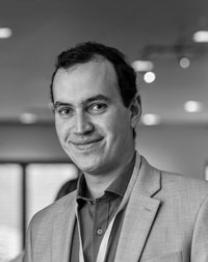
©natalia-stock.adobe.com
The leather industry plays a vital role in the economies of both Pakistan and Bangladesh. In Pakistan, leather is the third-largest export sector, contributing approximately 4% to GDP. In Bangladesh, the sector is the second-largest source of foreign exchange and a livelihood for over a million people. Despite its economic significance, the industry faces critical challenges related to environmental sustainability, ethical sourcing, and compliance with evolving global trade regulations.
One of the major issues in the leather supply chain is the lack of traceability and transparency—from raw material sourcing to finished goods. This opacity makes it difficult to verify sustainable and responsible practices, creating compliance risks for businesses. With increasing global scrutiny, especially from regulations like the Regulation on Deforestation-free Products of the European Union (Regulation (EU) 2023/1115) (EUDR) and other environmental and ethical sourcing requirements, the pressure on leather-producing countries to ensure traceability and responsible sourcing is greater than ever.
This webinar brings together experts and industry stakeholders to examine the challenges and explore potential solutions for improving transparency in the leather industry, with a particular focus on Pakistan and Bangladesh through insights from two projects supported by the Sustainable Manufacturing and Environmental Pollution (SMEP) programme. Transparency can be enhanced by improving traceability along the leather value chain, from where animals are raised to slaughterhouses and tanneries, enabling risk identification, mitigation, verification, and potential certification.
Funded by the Foreign, Commonwealth & Development Office of the United Kingdom (FCDO-UK) and implemented by the UN Trade and Development (UNCTAD), SMEP is addressing key challenges in the leather industry by enhancing traceability, reducing environmental pollution, and supporting circular economy practices.
Objectives
- Raise awareness of transparency issues and potential incentives for compliance within the global and South Asian context, explicitly linking these to EUDR implications
- Explore practical and evidence-based solutions that respond to policy challenges and industry needs, drawing on SMEP project insights; and
- Facilitating cross-sector collaboration
Key outcomes
- Enhance awareness of the current challenges faced by the leather industries in Pakistan and Bangladesh, as well as the additional challenges anticipated with the implementation of the EUDR in January 2026. The regulation will be directly applicable to EU importers/traders. Exporters (e.g., in Pakistan and Bangladesh) will be indirectly affected.
- Provide insights into potential solutions being developed in both countries under the SMEP programme, particularly in the areas of transparency and traceability.
- This workshop is organised by World Wide Fund for Nature-Pakistan (WWF-Pakistan) and builds on two previous SMEP eco-tanning workshops for East Africa (August 2023 and November 2023) in Nairobi, Kenya.
Moderator
Henrique Pacini, Economic Affairs Officer and SMEP Programme Lead, UN Trade and Development (UNCTAD)
Speakers
Sohail Ali Naqvi, Director Freshwater Programme and Lead Sustainability and Stewardship, WWF-Pakistan
Elzette Henshilwood, Technical Project & Relationship Manager, SMEP programme
Adeel Younas, Manager Sustainable Supply Chains-WWF-Pakistan- SMEP project
Ebenezer Laryea, Project Director, LeatherTrace Bangladesh - Aston University – LeatherTrace SMEP project in Bangladesh
Anne Nistad, Senior Manager, Chain of Custody Standard, Leather Working Group
Mathieu Lamolle, Senior Advisor Sustainable Global Value Chains, International Trade Center
Henrique Pacini is an economist at the United Nations in Geneva, where he works on trade and circular economy issues. He has a degree in economics from the University of São Paulo, a Masters in European Studies from Hochschule Bremen, Germany, and a Ph.D in Energy Technology from KTH, Sweden.
He recently completed a post-doctoral fellowship at Harvard University, where he examined the commercial dynamics of secondary/scrap materials in world trade, and co-chaired Harvard’s first Circular Economy Symposium. Dr. Pacini published over 60 articles on environment, energy, trade and development issues.
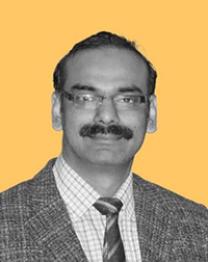
Sohail Naqvi is Director, Freshwater Programme and Lead of Sustainability & Stewardship, WWF-Pakistan.
An engineer by profession, he brings over 17 years of expertise in water and environmental management. He is also a member of the ZDHC Wastewater Council and the AWS Global Technical Committee.
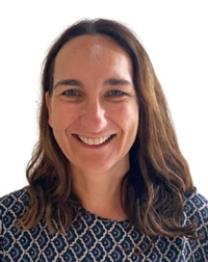
Elzette Henshilwood is a Technical Project and Relations Manager for the SMEP Programme, managing a portfolio of projects implementing solutions in the Textiles and Tanneries sectors.
With a background in urban studies, she has contributed to sustainable urban development through land use planning, environmental management, and urban research, with work published by UN Habitat.
In this role, she bridges the gap between sustainable manufacturing and urban development, recognising that cleaner production practices and solutions are essential for the circularity, resilience and sustainability of cities.
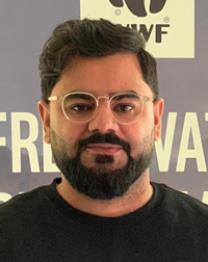
Adeel Younas is a Sustainability Practitioner with over a decade of experience in environmental sustainability and stewardship. He holds a Bachelor's degree in Environmental Engineering and a Master's degree in Business.
Currently, He serves as Manager Sustainable Supply Chain at World Wide Fund for Nature (WWF) Pakistan leading “Pakistan Leather Sector: Traceability, Cleaner Production and Circularity” project aimed at piloting innovative solutions around traceability, cleaner production and circularity for reducing the environmental and socio-economic impacts of the manufacturing sector in Pakistan. Adeel Younas is also engaged as expert with Leather Working Group (LWG)’s technical task team and assessor for productivity specialist for Asian Productivity Organization (APO) Japan.

Dr Ebenezer Laryea is a Reader (Professor) in Law at Aston University and Project Director for the Fresh Produce Impact Hub (FRESHPPACT), a research and development hub delivering practical solutions to plastic pollution within Ghana’s fresh-produce manufacturing and supply chains.
He also leads the LeatherTrace Bangladesh project, a pioneering initiative developing and piloting a digital e-traceability system which aims help Bangladesh’s tannery sector meet international environmental and social compliance standards across global value chains.
Ebenezer's research centres on Sustainability and Sustainable Development Law - spanning areas such as plastics, traceability, human rights, climate justice, social impact, net zero, and decarbonisation - where he has produced several research and knowledge exchange outputs.
His most recent work is a researched national policy report that sets out a practical blueprint for Ghana’s transition from conventional plastic products to plastic alternatives and non-plastic substitutes, advancing sustainable industrial practice and trade in sustainable alternatives.
Anne is currently Senior Standards Manager at LWG. She has over 10 years’ experience working with voluntary sustainability standards and schemes in various fields such as fisheries, sugarcane and jewellery. Her role at Leather Working Group involves developing Chain of Custody requirements for their sustainability system for the leather manufacturing industry.
An expert in standards and assurance, Anne has developed, supported and/or assessed against the Marine Stewardship Council (MSC), Responsible Jewellery Council (RJC), Bonsucro, and Aquaculture Stewardship Council (ASC) schemes. Prior to joining Leather Working Group she worked at TDi Sustainability and Assurance Services International, an accreditation and assurance provider for several voluntary sustainability schemes.
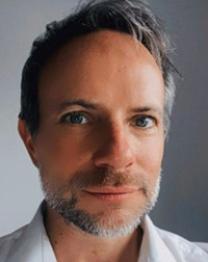
Mathieu Lamolle has over 15 years of experience in international trade, market access and sustainable development issues.
He holds a Master’s degree in International Economics and Management from the Solvay Brussels School of Economics and Management (SBS) and speaks fluently English, French and Spanish. Mathieu works at the International Trade Centre (ITC) as Senior Advisor, Sustainable Global Value Chains. He leads ITC’s work on sustainability standards and multi-stakeholder initiatives, and he leads ITC’s work on deforestation-free global value chains.
He is also ITC focal point for MSME technical assistance in the context of the new EU Deforestation-free products Regulation (EUDR). Mathieu coordinates partnerships with private industry groups, companies and civil society organizations and he delivers high-level keynote contributions to sustainability global events, he also delivers technical assistance and advisory services to MSMEs to develop sustainable business strategies, helping companies to integrate sustainability in their supply chains and access international markets.



